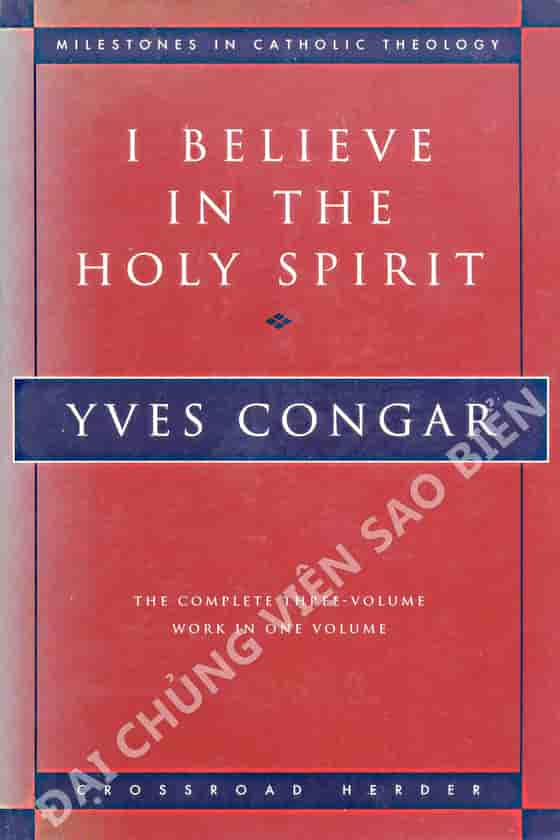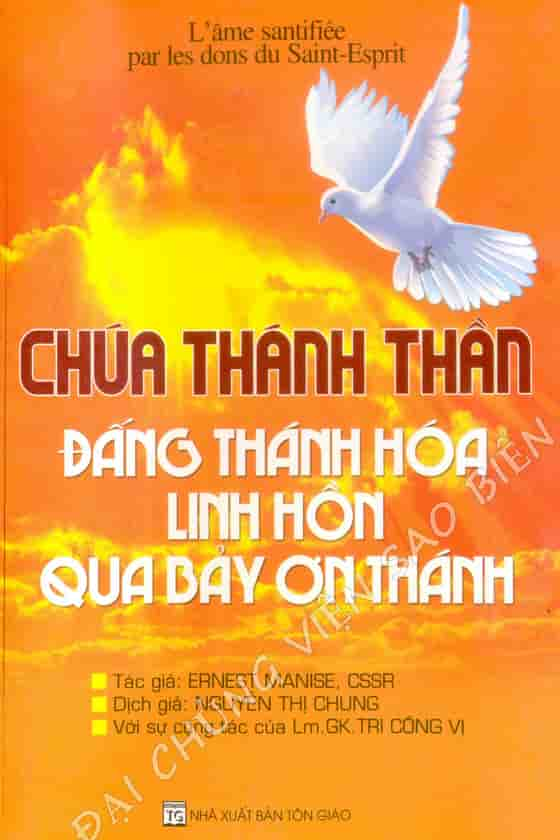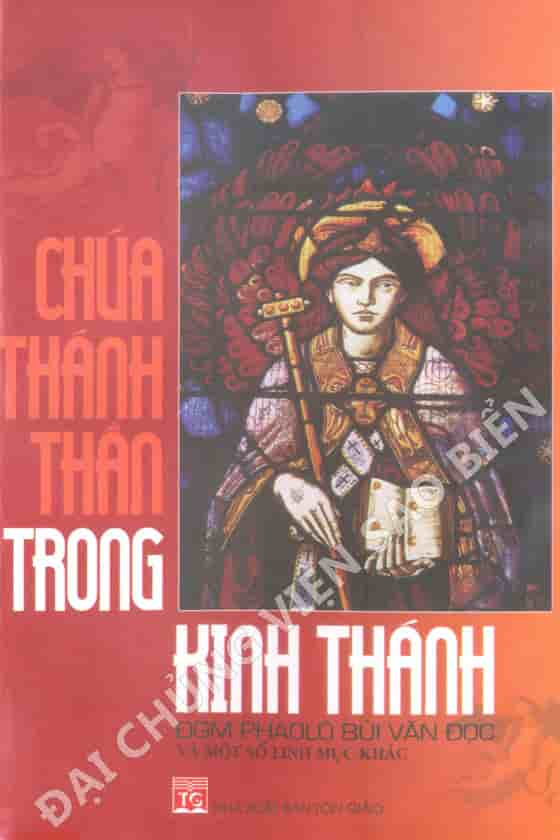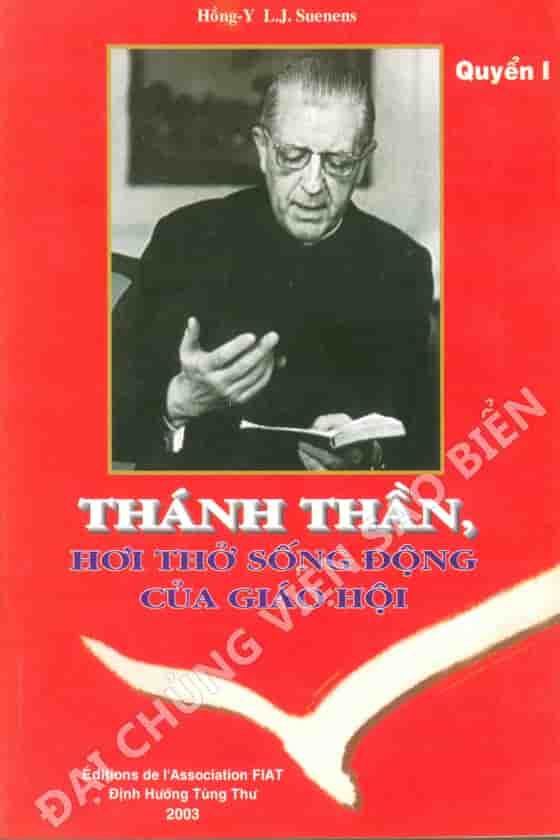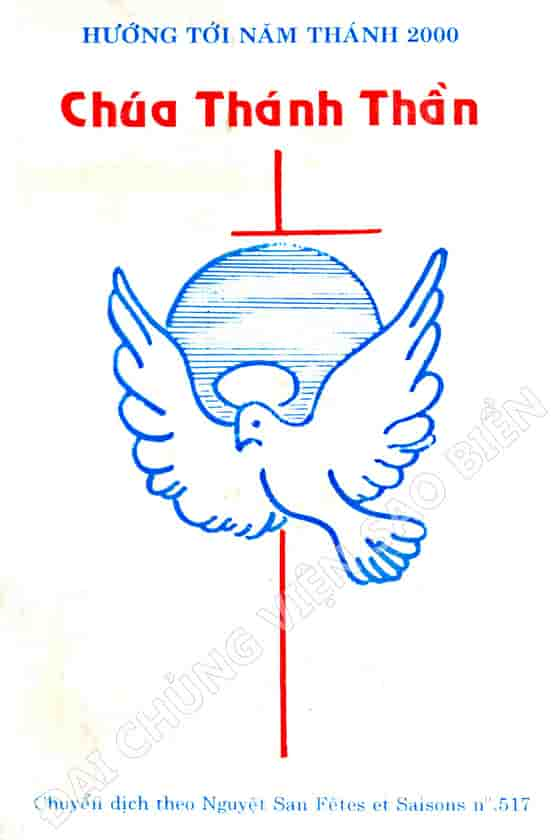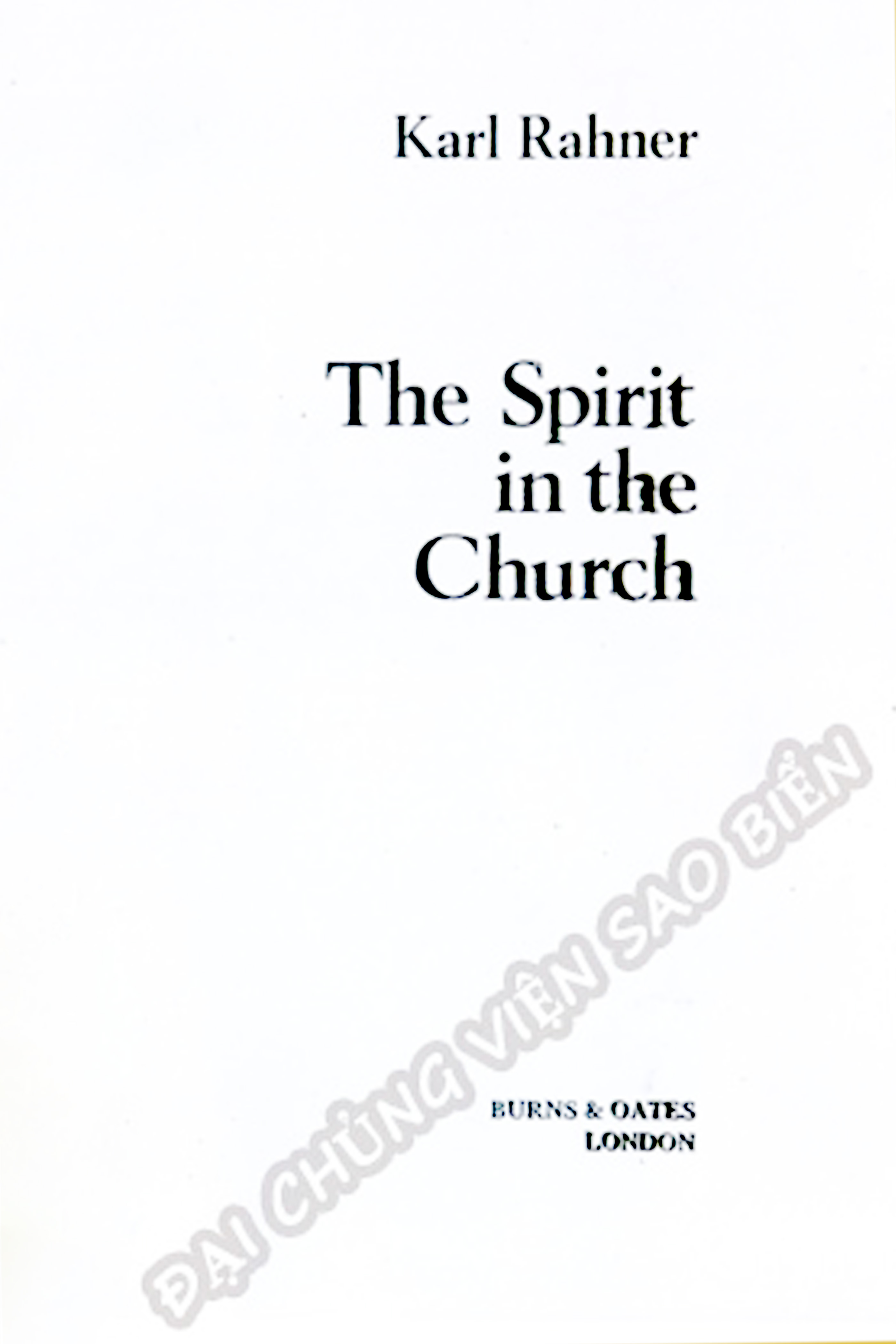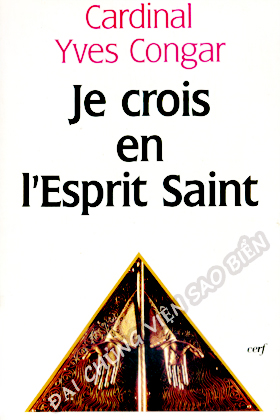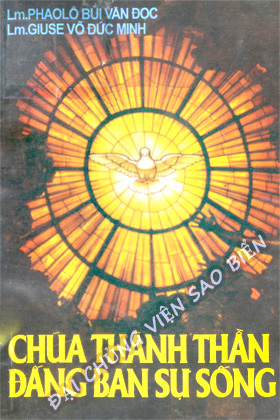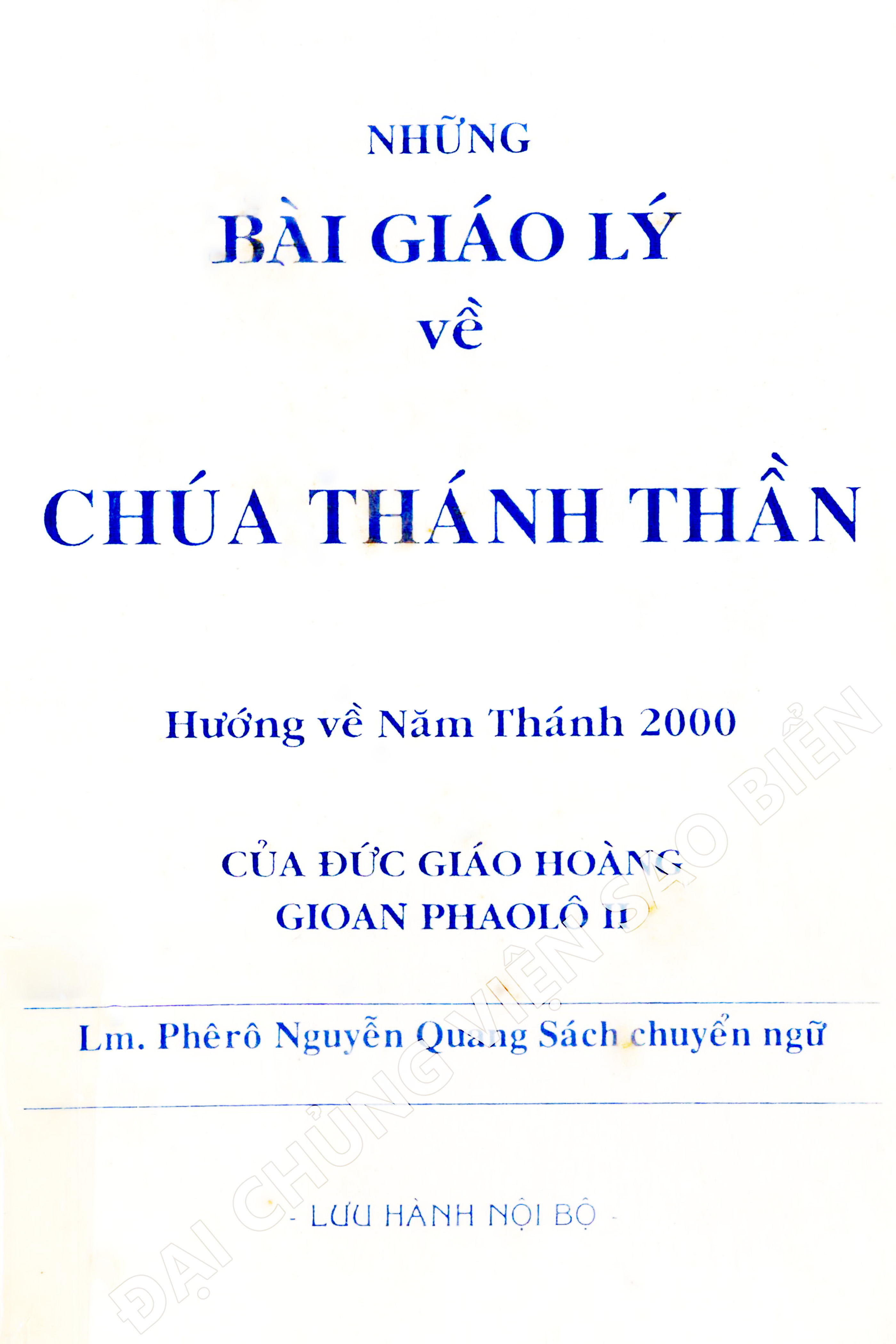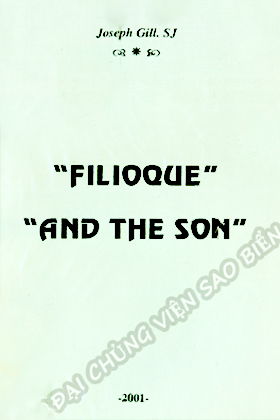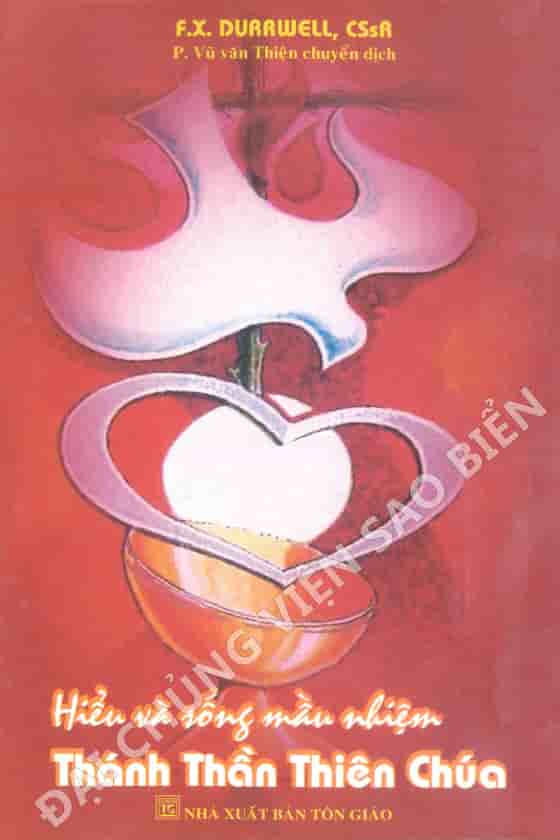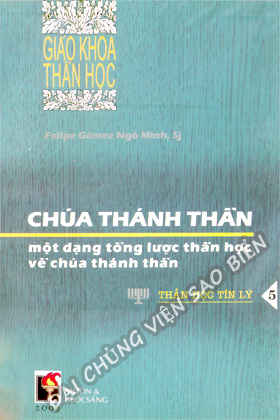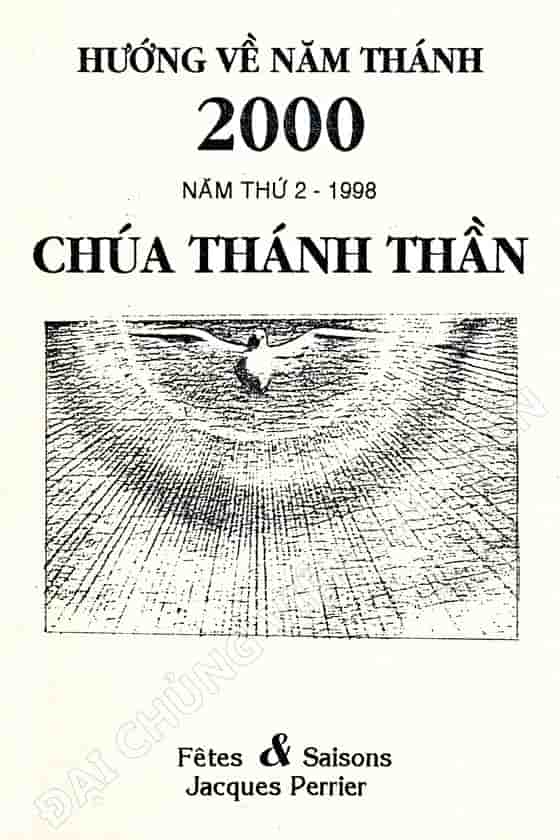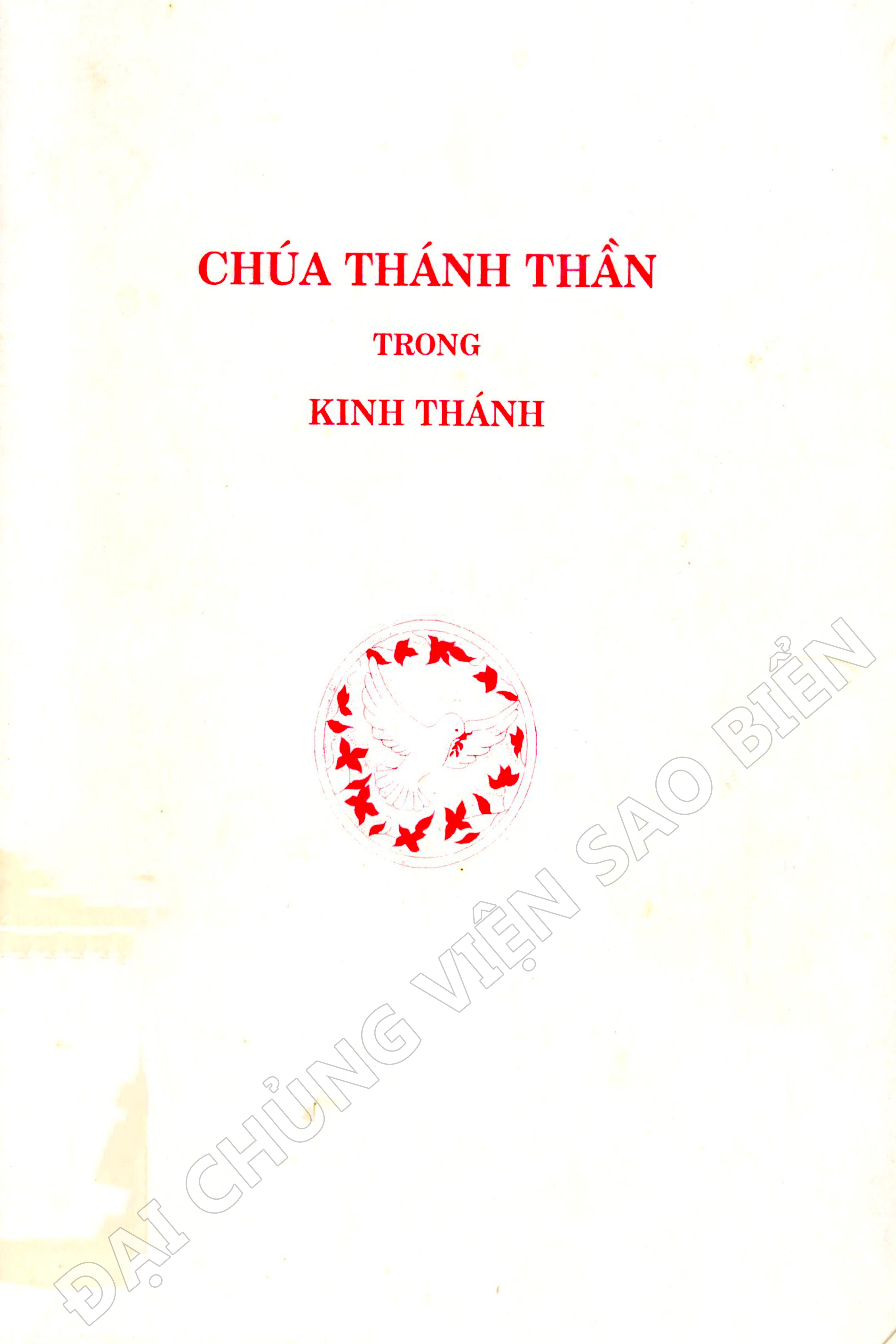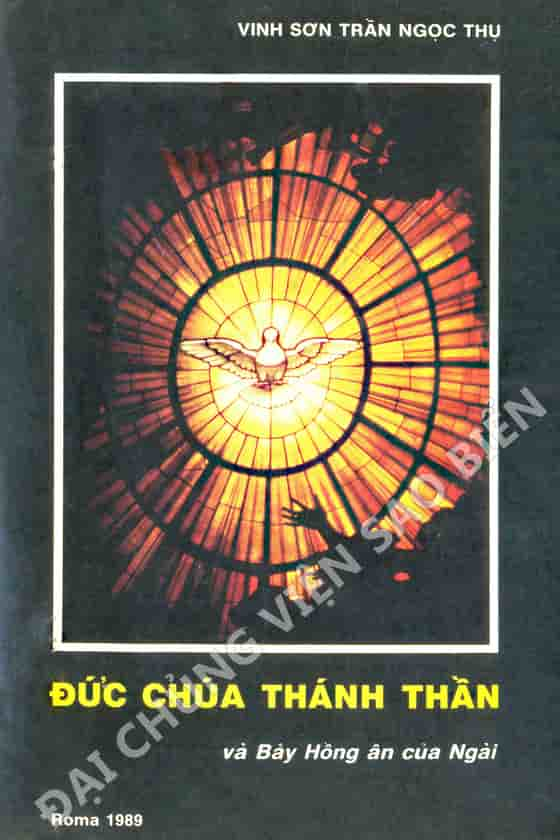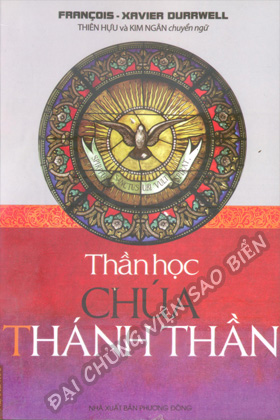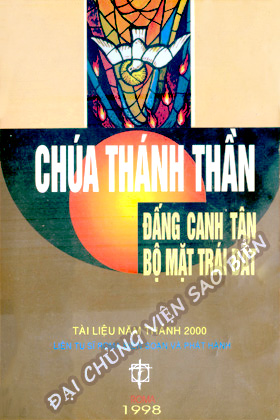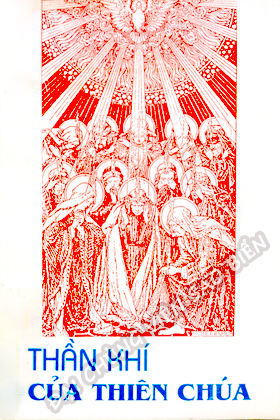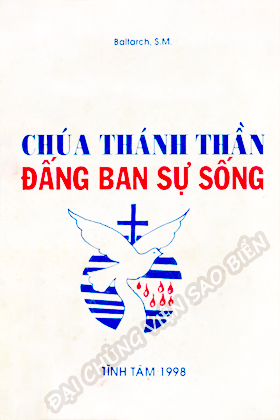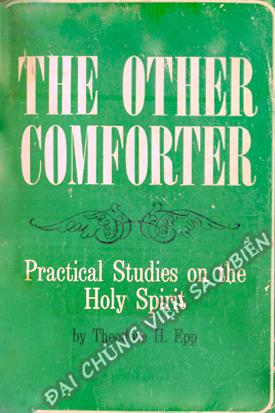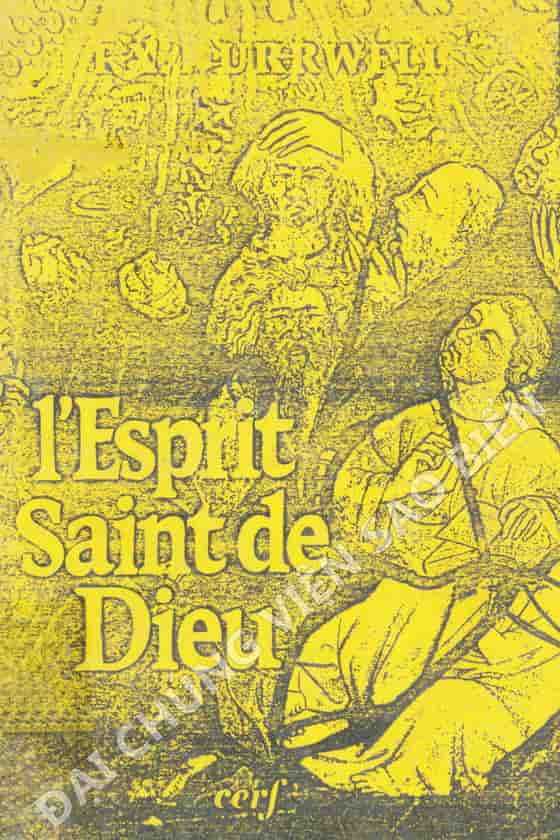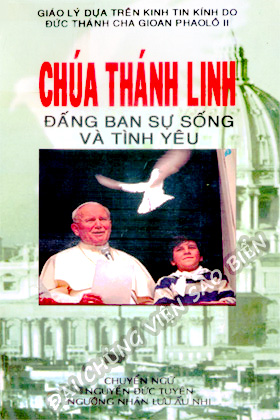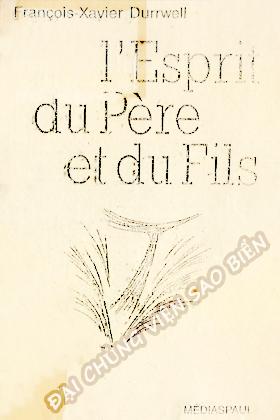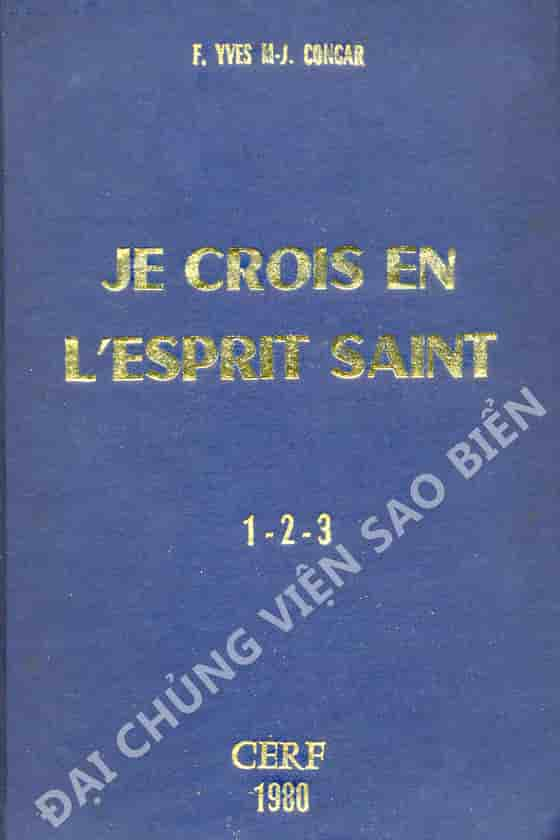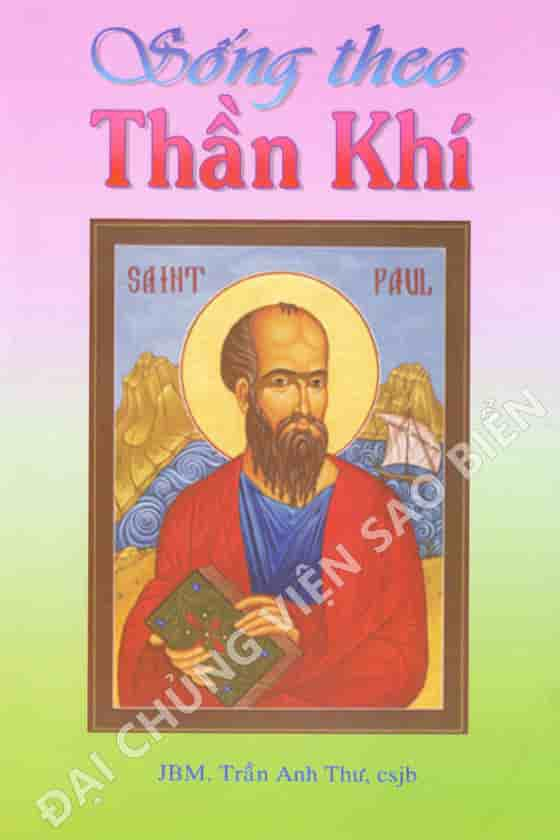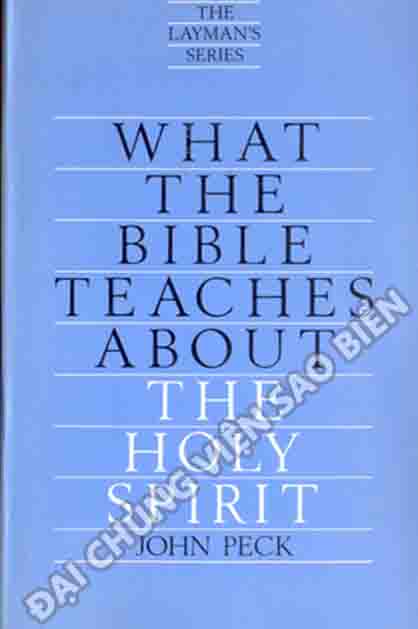| PART ONE |
|
| THE HOLY SPIRIT IN THE DIVINE TRI-UNITY |
|
| |
|
| |
|
| 1 The sources of our knowledge of the Holy Spirit. |
|
| Necessity and conditions for a dogmatic and theological expression |
3 |
| 2 The 'Economic' Trinity and the 'Immanent' Trinity |
11 |
| |
|
| II THE STAGES IN THE DEVELOPMENT OF A THEOLOGY OF THE THIRD PERSON |
19 |
| Before the Arian crisis |
19 |
| (A) In the Greek part of the Church |
24 |
| 1 The criticism of Arianism. Advances in the Theology if the Trinity |
24 |
| 2 The Cappadocian Fathers. The First Council of Constantinople (381). John Damascene |
29 |
| 3 The Filioque as professed by the Latin Fathers and the councils before it became a subject of disunity |
49 |
| The Teaching |
49 |
| The Latin Fathers |
50 |
| The Councils and the Creeds |
51 |
| The Addition of the Filioque to the Creed |
53 |
| 4 The Partriarch Photius. The Era of Confrontatinon and Polemics |
57 |
| 5 A Note on the Theology of Gregory Palamas |
61 |
| 6 Eastern Pneumatology Today |
72 |
| |
|
| (B) The West and the Revelation of the Tri-Unity of God |
79 |
| 1 Augustine |
80 |
| The Theology of the Relationships |
81 |
| The Filioque |
85 |
| A Note on Augustine's Theology of the Trinity and the Eastern Tradition |
87 |
| The Images of the Trinity |
89 |
| 2 Anselm |
96 |
| 3 Speculative Triadology constructed in faith and under the sign of Love |
103 |
| A: Richard of Saint- Victor |
103 |
| B: Alexander of Hales and Bonaventure |
108 |
| 4 Thomas Aquinas |
116 |
| 5 Dogmatic definitions in Pneumatology: a need for hermeneutics |
128 |
| |
|
| III THEOLOGICAL REFLECTIONS |
133 |
| 1 The Father, the Absolute Source of Divinity |
133 |
| The Greek Fathers |
133 |
| The Latin West |
134 |
| 2 A Theological Meditation on the Third Person |
144 |
| 3 The Motherhood in God and the Femininity of the Holy Spirit |
155 |
| 4 Towards a Pneumatological Christology |
165 |
| |
|
| IV CONTRIBUTIONS TO AN AGREEMENT |
174 |
| 1 Unity of Faith but a difference of theological expression: |
|
| Greeks and Latins in the understanding of the Western theologians |
174 |
| 2 Attempts at and suggestions for an agreement |
184 |
| The Council of Florence |
184 |
| Appendix: Mgr Sergey and Mgr Basile Krivocheine on the Filioque |
190 |
| 2 Relationships and discussions between Orthodox and non-Roman Catholic communions |
192 |
| A: Orthodox and Old Catholics |
192 |
| B: Orthodox and Anglicans |
196 |
| Appendix: Vladimir Soloviev on the Filioque |
198 |
| 4 Some suggestions for agreement |
199 |
| 5 Should the Filioque be suppressed in the Creed? |
203 |
| 6 Did the Filioque have an ecclesiological impact? |
208 |
| 7 Nine Theses in conclusion |
213 |
| |
|
| Part Two |
|
| THE HOLY SPIRIT AND THE SACRAMENTS |
|
| |
|
| 1 The 'Seal of the Gift of the Spirit'. Some Thoughts about the Sacrament of 'Confirmation' |
217 |
| (1) Uneasiness about Confirmation |
217 |
| (2) The meaning of Confirmation is derived from the mystery of Christ |
219 |
| (3) Confirmation in the building up and the mission of the Church |
219 |
| (4) Confirmation in the growth of the baptized person |
221 |
| (5) The two sacraments of Baptism and Confirmation and the two missions of Christ and the Spirit |
222 |
| (6) Suggestions for sacramental practice |
223 |
| 2 The Eucharistic Epiclesis |
228 |
| The Epiclesis cannot be separated from the whole of the Eucharistic Prayer or Anaphora; |
|
| the meaning of the Anaphora |
228 |
| The Fourth-Century Epicleses: Consecration by them or by the words of institution? |
232 |
| The meaning of the celebration in the West: the ordained celebrant is himself a sacramental reality |
234 |
| The liturgical expression of the mystery in the two original traditions |
237 |
| Symbols of life peculiar to the East |
241 |
| The 'Zeon' or the Eucharistic Pentecost |
242 |
| Unleavened or leavened bread? |
243 |
| Appendix: The part played by the Holy Spirit in the Eucharist according to the Western tradition |
250 |
| 3 The Holy Spirit in our Communion with the Body and Blood of Christ |
258 |
| 4 The Life of the Church as one long Epiclesis |
267 |
